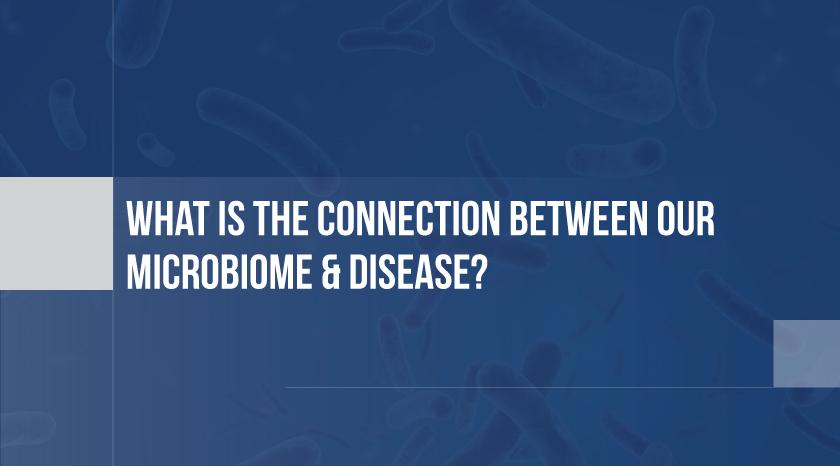The human microbiome, the vast collection of microorganisms that reside in and on our bodies, plays an essential role in maintaining health. This complex ecosystem, particularly concentrated in the gut, influences many bodily functions, from digestion and nutrient absorption to immune response and mental health. Recent research has illuminated the profound connection between the microbiome and disease, revealing how imbalances in this delicate community can contribute to a wide range of health issues.
The Microbiome: A Brief Overview
The microbiome consists of trillions of microbes, including bacteria, viruses, fungi, and other microorganisms. The gut microbiome, housed primarily in the intestines, is the most studied and has the most significant impact on health. A healthy microbiome is diverse and balanced, with beneficial bacteria outnumbering harmful ones, creating a harmonious environment that supports various bodily functions.
Microbiome and Disease: Key Connections
- Digestive Disorders
The gut microbiome directly impacts digestive health. An imbalance, known as dysbiosis, can lead to conditions like irritable bowel syndrome (IBS), inflammatory bowel disease (IBD), and even colorectal cancer. Dysbiosis can result in increased gut permeability (leaky gut), allowing harmful substances to enter the bloodstream and trigger inflammation, exacerbating these conditions.
- Metabolic Diseases
The microbiome plays a crucial role in metabolism, affecting how the body processes and stores nutrients. Dysbiosis has been linked to obesity, type 2 diabetes, and metabolic syndrome. An unhealthy gut microbiome can lead to insulin resistance, impaired glucose metabolism, and increased fat storage, contributing to these metabolic disorders.
- Immune System Disorders
A significant portion of the immune system resides in the gut, where the microbiome helps regulate immune responses. Dysbiosis can disrupt this regulation, leading to autoimmune diseases like rheumatoid arthritis, multiple sclerosis, and lupus. The imbalance can cause the immune system to attack the body’s tissues, mistaking them for harmful invaders.
- Cardiovascular Diseases
Emerging research suggests a link between the gut microbiome and cardiovascular health. Certain gut bacteria produce compounds like trimethylamine N-oxide (TMAO), which have been associated with an increased risk of atherosclerosis, a condition characterized by the hardening and narrowing of the arteries. Dysbiosis can also contribute to chronic inflammation, a key factor in cardiovascular disease development.
- Mental Health Disorders
The gut-brain axis, a communication network linking the gut and brain, is significantly influenced by the microbiome. Dysbiosis can affect the production of neurotransmitters like serotonin and dopamine, leading to mental health issues such as depression, anxiety, and autism spectrum disorders. Research indicates that a healthy gut microbiome supports cognitive function and emotional well-being, highlighting the importance of maintaining microbial balance.
- Respiratory Diseases
The respiratory microbiome, although less studied than the gut microbiome, also impacts health. Dysbiosis in the respiratory tract can contribute to asthma, chronic obstructive pulmonary disease (COPD), and respiratory infections. A balanced respiratory microbiome helps protect against pathogens and supports immune responses in the lungs.
- Cancer
The microbiome influences cancer development and progression. Dysbiosis can lead to chronic inflammation and a compromised immune system, creating an environment conducive to cancer. Some gut bacteria produce toxins that can damage DNA, increasing the risk of colorectal cancer. Conversely, a healthy microbiome can enhance the effectiveness of cancer treatments and support recovery.
Maintaining a Healthy Microbiome to Prevent Disease
Given the strong connection between the microbiome and disease, maintaining a healthy and balanced microbiome is crucial for overall health. Here are some strategies to support a healthy microbiome:
- Diet
A diet rich in fiber, fruits, vegetables, and whole grains supports a diverse and healthy microbiome. Fermented foods like yogurt, kefir, sauerkraut, and kimchi provide beneficial probiotics that can enhance gut health. Reducing the intake of processed foods, sugars, and artificial additives can prevent dysbiosis.
- Prebiotics and Probiotics
Prebiotics are non-digestible fibers that feed beneficial bacteria, while probiotics are live beneficial bacteria. Both can be obtained from food and supplements to support a healthy microbiome. Foods like garlic, onions, bananas, and asparagus are rich in prebiotics, while probiotics are abundant in fermented foods.
- Avoiding Overuse of Antibiotics
Antibiotics can disrupt the microbiome by killing beneficial bacteria along with harmful ones. Use antibiotics only when necessary and follow the prescribed course to minimize their impact on the microbiome.
- Stress Management
Chronic stress negatively affects the microbiome. Practices such as meditation, yoga, regular exercise, and adequate sleep can help manage stress and support microbial balance.
- Regular Physical Activity
Exercise promotes a healthy microbiome by increasing microbial diversity and supporting gut health. Aim for regular, moderate physical activity to maintain overall well-being.
The connection between our microbiome and disease is profound and multifaceted. A balanced and diverse microbiome is essential for maintaining health and preventing a wide range of diseases, from digestive and metabolic disorders to immune and mental health issues. By adopting healthy lifestyle practices that support microbial balance, we can harness the power of our microbiome to enhance overall well-being and reduce the risk of disease. Understanding and nurturing this intricate ecosystem is a vital step towards achieving optimal health.




